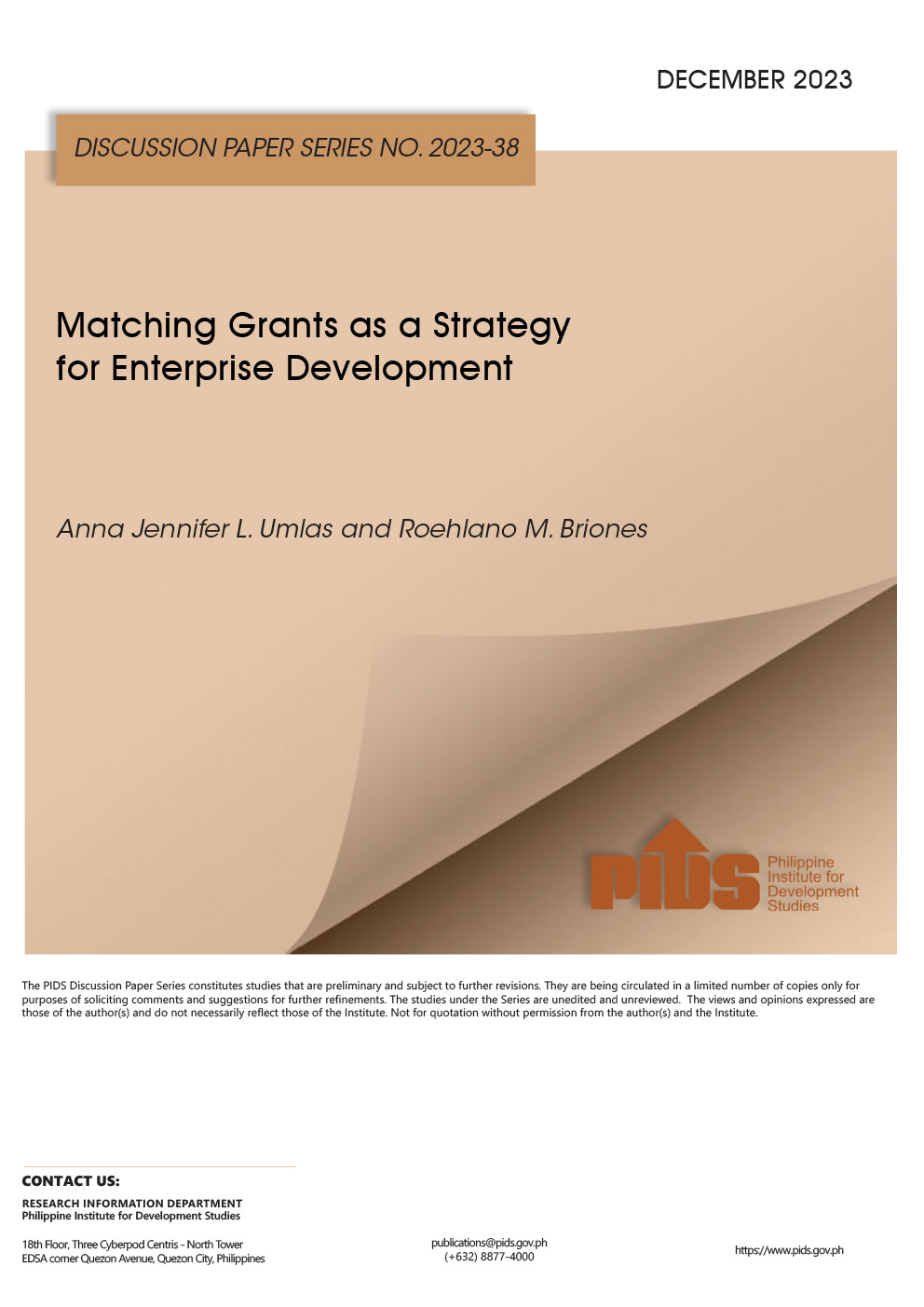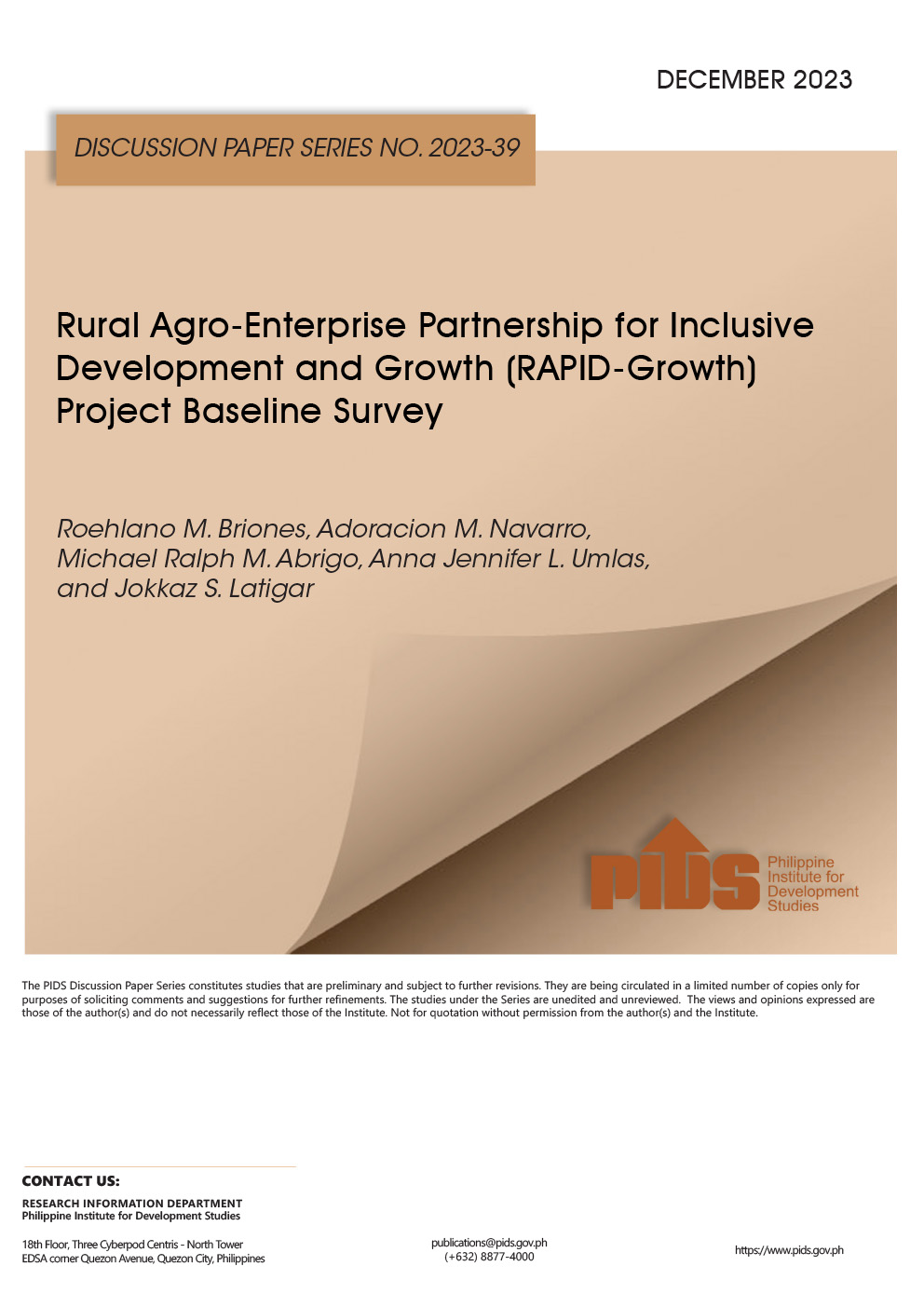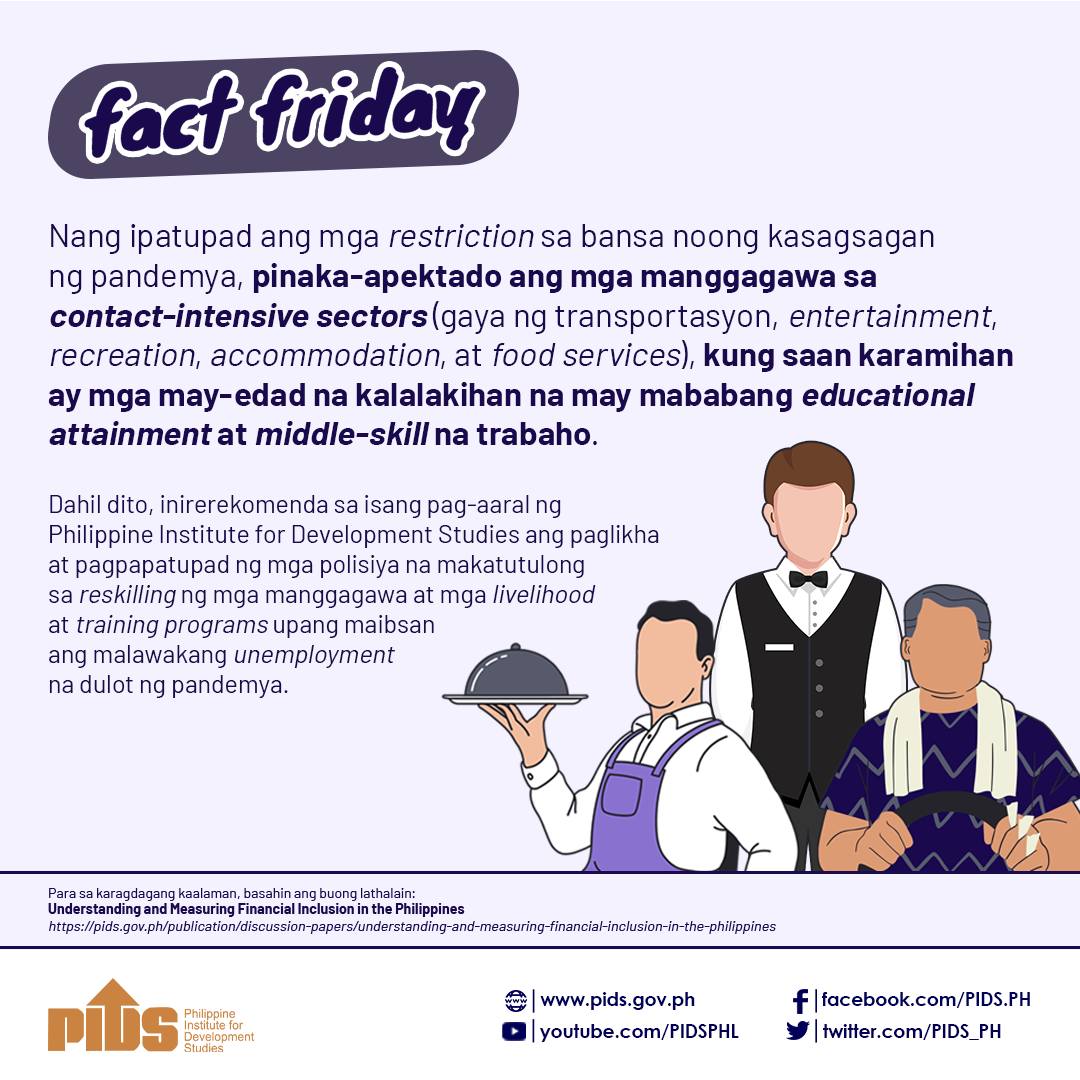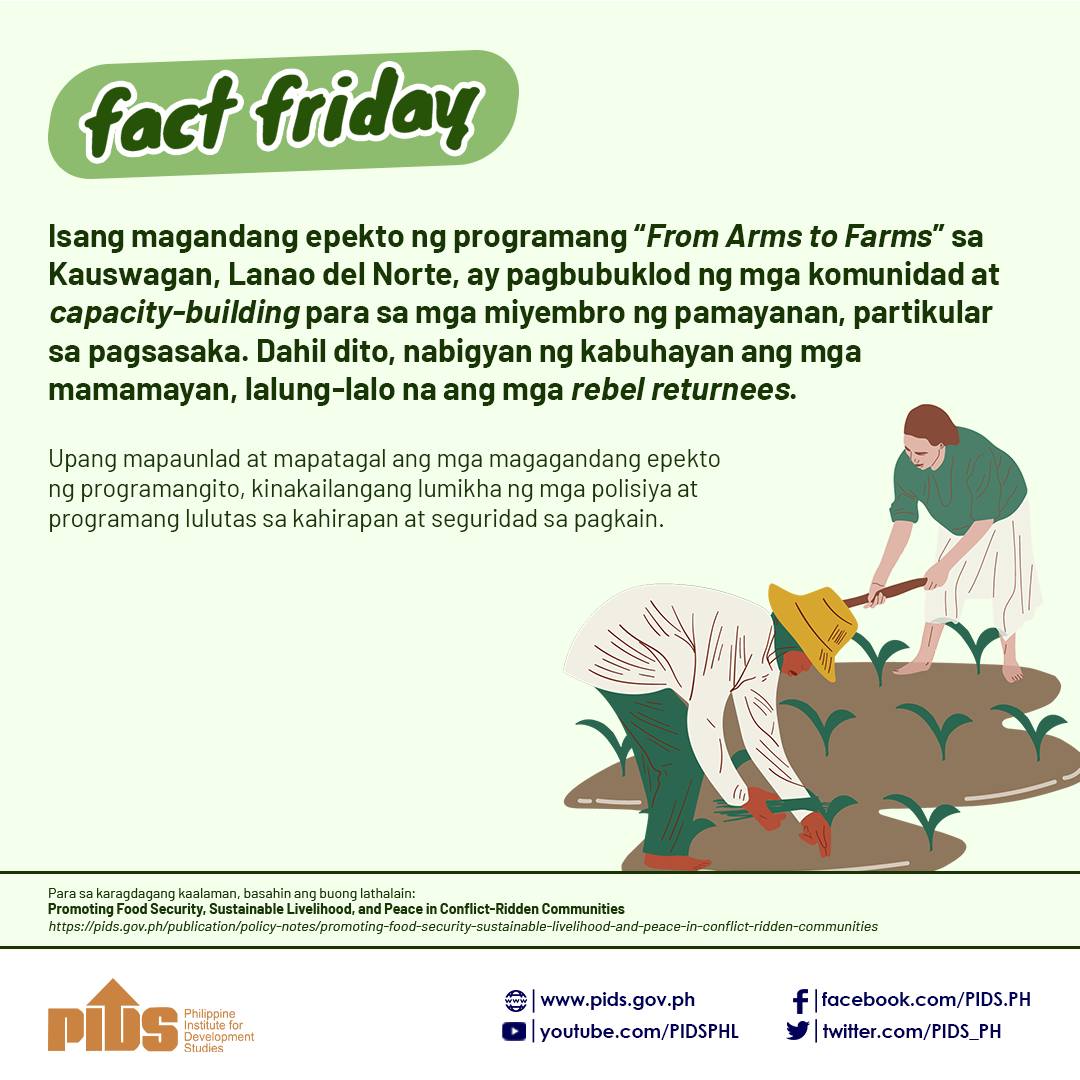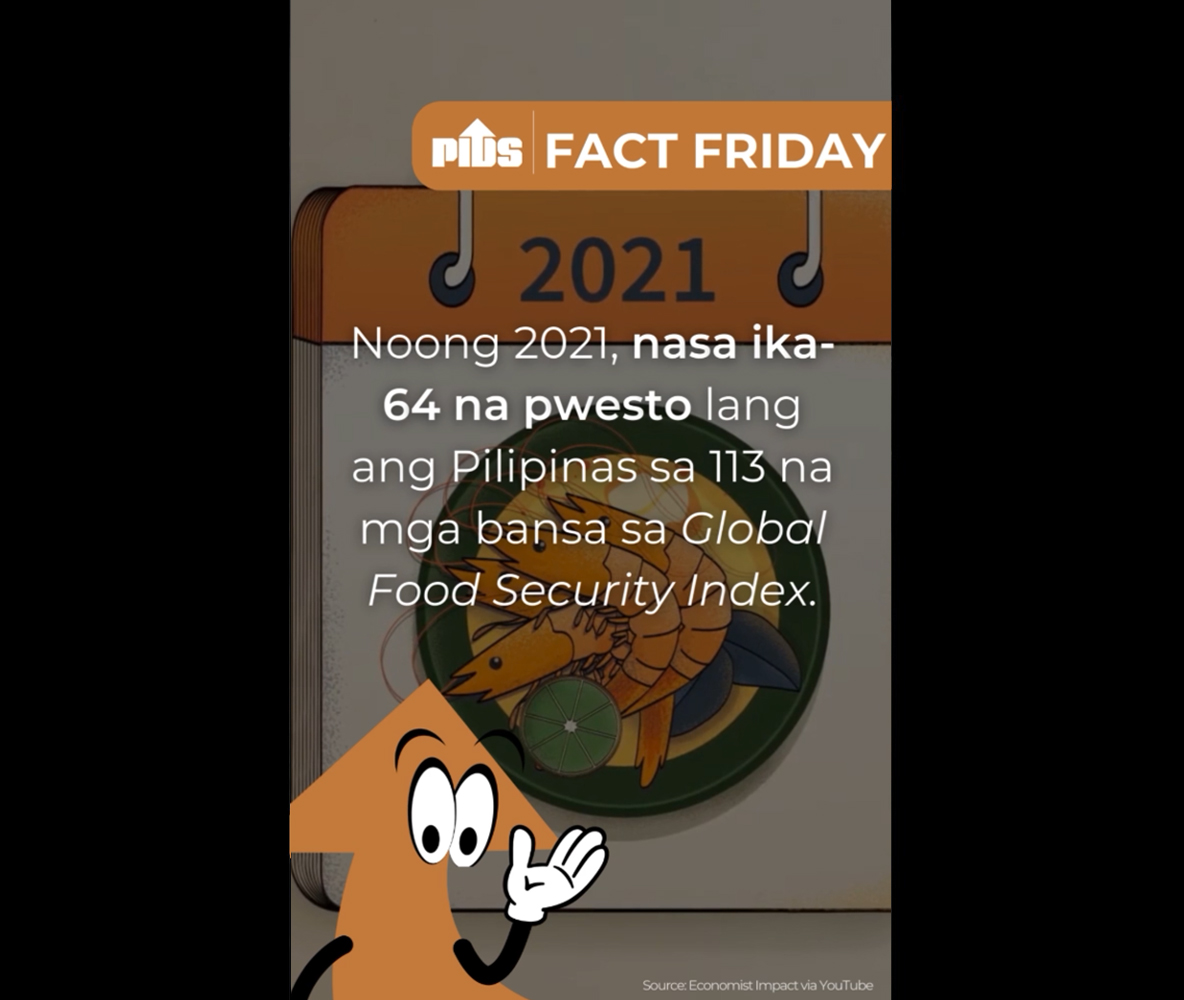Despite significant challenges, the Philippines can still attain food security using a technology-enabled systems-based approach, according to a study of the Philippine Institute for Development Studies (PIDS).
The study proposed a multi-sectoral national food and nutrition plan that targets all while prioritizing people most in need.
In the study published last June said discussing food security is a must for the government as it directly contributes to the higher goal of nutrition security.
Citing the World Food Summit definition, the study said food security could be attained if the availability of food supply, physical and economic accessibility, utilization through food consumption, safety and quality as well as price and volume stability are ensured.
Citing data from the Philippine Statistics Authority, the research said even if most of the key agricultural commodities have a 100-percent self-sufficiency ratio (SSR) or the ability to produce to meet domestic demand, the country’s rice, pork and chicken SSR decreased to 90 percent. SSR for tuna and galunggong declined to 90 and 80 percent, respectively.
“Infrastructure plays a big role in determining the cost of food. Food, especially perishables, is sensitive to temperature and proper handling. If the food is damaged during transport due to uneven roads or substandard storage facilities, the likelihood of food wastage increases. This will cause food prices to also increase,” the study authored by Ivory Myka Galang, PIDS supervising research specialist.
The research said at present, the food security framework of the Department of Agriculture encapsulates the government’s campaign on food security as it is supported by various agencies and local government units with various programs and initiatives, including promoting home or urban gardening, developing prepackaged nutritious products, educational campaigns and school-based nutrition programs.
However, Galang emphasized the importance of using a systems view in addressing food security challenges since the sector is connected to transport, energy, health and other systems.
Other immediate issues that need to be resolved based on the research include increasing agriculture yield to ensure domestic food demands, addressing the issue of land conversion for residential and commercial development, helping smallholders increase their crop yield, keeping farming and food production costs low and improving the roads and the transport system.
Based on data from the Department of Science and Technology-Food and Nutrition Research Institute, the number of moderately or severely food-insecure Filipino households increased from 43 to 62 percent during the pandemic.
The Philippines also dropped to 67th out of 113 countries in the Global Food Security Index Rating in 2022 from the 64th spot in 2021.

